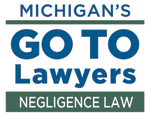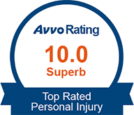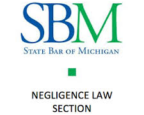
After a car accident, you may face medical expenses you never planned or saved for. Medical debt can be overwhelming, and if you’re one of the 23 million people in the U.S. who owe more than $250 to a medical provider, it’s natural to worry about how you’ll pay for expenses incurred due to an accident that was not your fault.
Michigan law mandates that car accident victims receive financial compensation from their auto insurance companies for their medical bills after an accident. However, compensation is only available up to the individual’s policy limits —and those amounts may not be enough to cover the medical expenses associated with a serious car accident injury.
The auto accident attorneys at Christensen Law have decades of experience helping Michiganders recover the compensation they need to pay their bills and move on with their lives. You may have legal options beyond your no-fault benefits if you’re dealing with costly medical expenses after a collision. Call or contact us online for a free case review with a Southfield car accident lawyer.
Michigan No-Fault Laws
All Michigan drivers must carry Personal Injury Protection (PIP) coverage as part of their auto insurance policy. PIP benefits will pay for your medical bills regardless of who was at fault for the accident.
After a collision, you can file a claim with your own insurance company to claim those no-fault benefits. It is vital to file your claim within one year of the accident. If you miss the deadline, you could forfeit your right to benefits.
What PIP Insurance Pays
According to the Michigan Department of Insurance and Financial Services (DIFS), your PIP benefits will cover all “reasonably necessary” medical bills up to the policy limits. PIP medical coverage has six different levels that drivers can choose from. These range from unlimited coverage to a complete opt-out, which is only available if the insured has Medicare.
PIP benefits also cover a portion of your missed wages for up to three years. Wage loss benefits limits vary from policy to policy, so check yours to determine what you’re entitled to.
Keep in mind that PIP coverage requires you to pay a deductible amount before your benefits kick in and pay your medical bills.
How are Bills Handled After Filing a Claim?
You will most likely submit a claim to your auto insurance company to claim your PIP medical benefits after a crash. Keep track of all medical bills for submission to your insurer and request the benefits as soon as possible. You do not want to wait until your one-year statute of limitations expires.
If approved, your insurance company should cover all medically necessary expenses related to your treatment. But just because you turn to your insurer doesn’t guarantee they will pay your total medical costs. If the insurance company challenges your treatments, you may experience pushback. A Southfield car accident attorney can negotiate maximum compensation on your behalf.
What if my Auto Insurance Company Won’t Pay my Medical Bills After a Car Accident?
If your insurance provider refuses to pay your medical bills by saying your treatment is not medically necessary, you could still have options. You may be able to file a lawsuit against your insurance company and demand coverage for your medical expenses.
Additionally, if your no-fault PIP medical benefits are paid but your costs exceed your policy limits, you may be able to file a personal injury lawsuit against the at-fault driver for excess medical benefits. An experienced car accident attorney from Christensen Law will identify every possible option available and advise you on the best path to reach your goals.
What Will be the Primary Coverage for Medical Expenses After a Crash?
In Michigan, medical benefits are either “coordinated” or “uncoordinated” on auto insurance policies.
Most policies are coordinated. This means the insured’s health insurance benefits kick in before their auto insurance benefits and will be the “primary payer.” You may not coordinate your benefits if Medicare or Medicaid pays for your health care.
If the benefits are uncoordinated, the insured’s no-fault benefits under their car insurance policy go into effect first.
Sometimes you can use either your health or auto insurance to pay your expenses. Additionally, if your auto insurance PIP coverage does not cover your medical bills, you may have to rely on your health insurance.
However, there are exceptions where health insurance will not be the primary payer. If your policy is a self-insured ERISA plan, your no-fault auto insurance policy will be the primary source for paying medical bills. Reach out to a lawyer if you’re unsure who’s responsible for paying your medical expenses.
What Provides Coverage for Someone Else’s Medical Expenses When You are at Fault?
If you are involved in an accident with another Michigan driver, their PIP benefits should cover their medical expenses. However, if you are involved in an accident with a driver from another state or the other driver’s injuries exceed their PIP limits, your bodily injury and coverage through your auto insurer will cover the other driver’s medical bills.
Michigan drivers must have bodily injury liability limits of $250,000 for one person injured or killed and $500,000 for two or more people injured or killed in an accident.
Does Michigan Medicaid Cover Car Accidents?
Michigan’s Medicaid program covers car accidents, though your Medicaid plan will be secondary to whatever coverage you have through your auto insurance carrier. Also, Medicaid plans will only cover your medical expenses, while your PIP benefits cover additional costs like lost income.
Get Help from an Experienced Southfield Car Accident Lawyer
Michigan car accident laws can be confusing to navigate, which is frustrating when you’re looking at a pile of unpaid medical bills and trying to heal from your injuries. Let the Southfield car accident lawyers at Christensen Law help you navigate this legal maze. For more information, contact our office for a free case review.





























